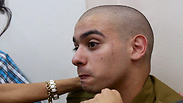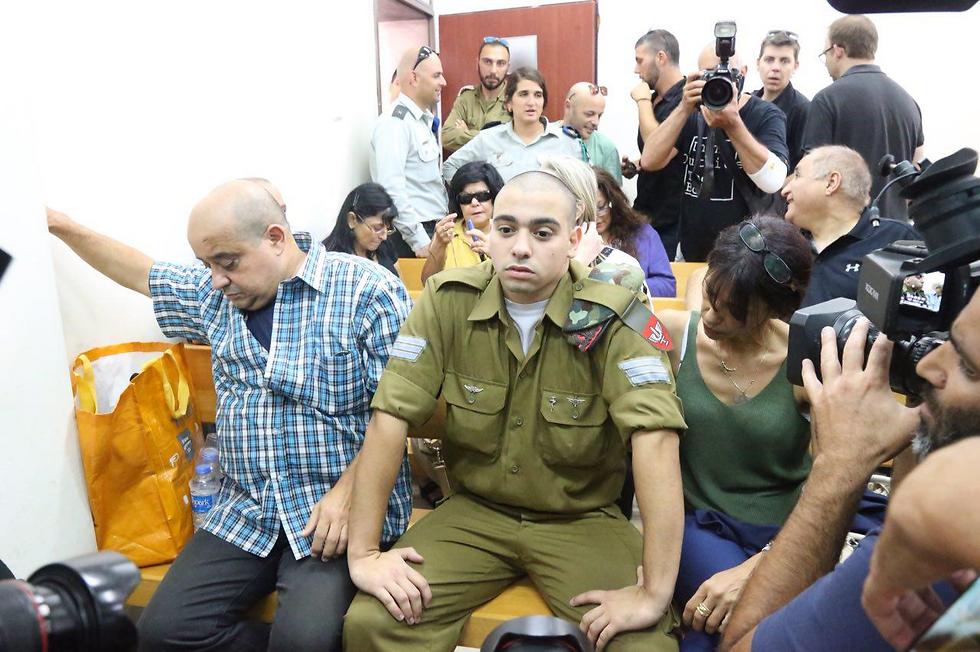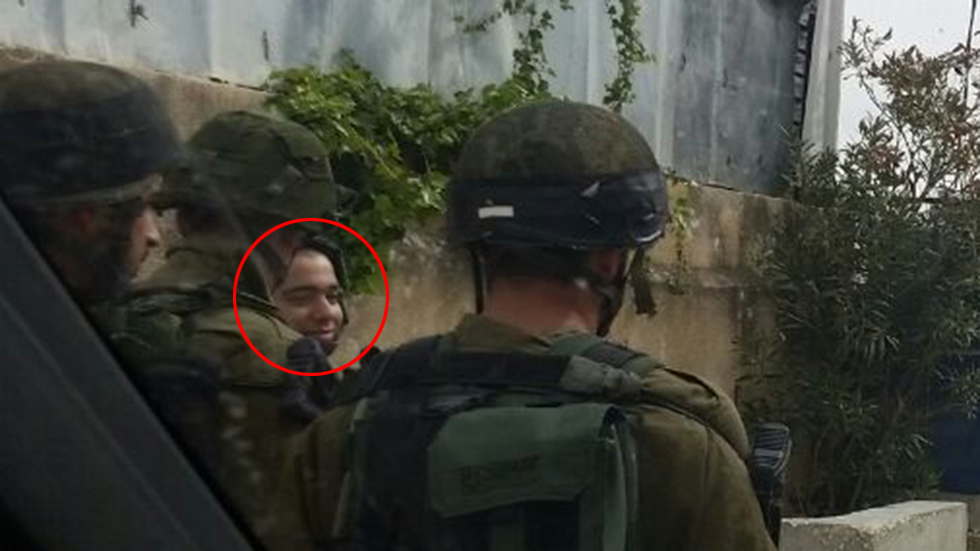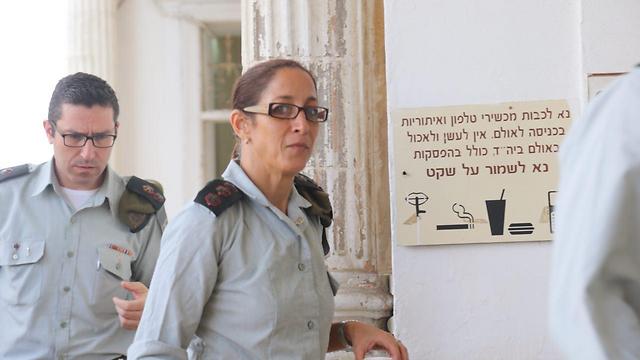
Elor Azaria
צילום: מוטי קמחי
Judge to Azaria: 'Why didn't you shoot earlier?'
In the Hebron soldier's final day of testimony, the panel of judges addressed their questions to him, attempting to ascertain when he felt that he was at risk, and why he acted as he did when he did.
After the conclusion of the accused's cross examination on Tuesday by the military prosecutor, later that evening the panel of judges questioned defendant Sgt. Elor Azaria, who is on trial for manslaughter after having shot dead an immobilized terrorist, Abed al Fatah Al-Sharif, in March in Hebron.
Judge Lt. Col. Carmel Vahavi asked Azaria to explain why he didn't shot al-Sharif earlier if, as Azaria had alleged, al-Sharif posed a danger to the persons in the area. "I don't know why I didn't shoot earlier," replied the defendant, who shortly after finished his 23 hours of testifying, which had been spread out over three days.
"My son is a hero," said Charlie Azaria at the session's conclusion, thanking the Israeli nation for their support. The trial is recessed for 2.5 weeks, when the defense will resume presenting its witnesses, which include two combat brigadier generals in reserves and two reserve major generals.
The military prosecutor, Lt. Col. (res.) Nadav Weisman, said, "Over the past three days, we have seen Azaria not manage to give explanations for variations in his versions and why others are allegedly falsely accusing him and contradicting his version."
During Azaria's testimony, Vahavi asked, "The data that led you to shoot were in your mind earlier: the warning of a combined attack, the Adloyada (Purim parade) that same day, the warm clothing, the shouting 'He's booby-trapped,' the attack itself, the knife next to the terrorist, and the knowledge about the statement that the terrorist moved. You knew all this at an earlier stage. Why didn't you shoot earlier?
Azaria: "As soon as I understood that the danger was immediate and real, I acted."
Vahavi: "The prosecutor claims that the time between these data and the shooting was two minutes, not fractions of a second. That's not an insignificant amount of time."
Azaria: "I acted when I understood the danger."
Vahavi: "How did you feel immediately following the shooting?"
Azaria: "In shock, a storm of emotions."
Vahavi confronted Azaria with the footage that had been shown: "What bothers me is your position during your entire testimony regarding the video. The videos were submitted as evidence. You rejected the videos in your testimony."
Azaria replied, "The videos didn't reveal anything. There's no weather in the video. In reality, it's like a war."
Later, Azaria stated, "A moment before the shooting, I had a dilemma that if I shoo, I would apparently take a life from a terrorist, a person, to neutralize and to save life."
Judge Lt. Col. Yaron Sitvon wondered about Azaria's refusal to reconstruct the incident as a tool that could have helped the judges to better understand what happened. Azaria answered that he agreed to the conditions presented by the lawyers.
Earlier in the night, addressing Judge Col. Maya Heller, Azaria said, "In the field, when the company commander came up to me, what was in my head was to tell him that there was an immediate fear of an explosive and knife."
Heller: "Why didn't you say to the company commander something simple, like 'I saved you' and read him the rules of engagement?"
Azaria: "I was in shock and a storm of emotions."
Heller: "What you wanted to happen, for the most justified reason, indeed happened. So why was your immediate reaction shock and confusion?"
Azaria: "It was my first incident with massive bleeding and the fact that I had shot for the first time at a terrorist, a person."
Addressing Azaria's claim that the battalion commander, Lt. Col. David Shapira, had lied to the court, Heller asked, "Why would the battalion commander need to cover himself, as you alleged?"
Azaria replied, "The battalion commander also understood his mistake with me, and he needs to get a position at the Officers' Training School. The mistake is how he didn't respond in the field in a conversation with me."













